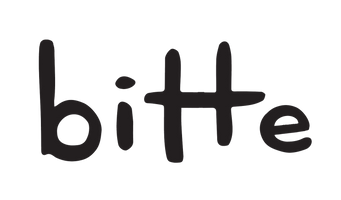About Wheat
Founded in 2002 by Charlotte and Peter Galsgaard, WHEAT is simple Danish-designed clothing for babies and kids combining comfort and sustainability with beautiful Scandinavian inspiration.
Chief Designer - Charlotte Galsgaard. With her classic lines, light color combinations and original patterns, she eloquently carries on the Scandinavian design tradition. For Charlotte, the children are always her focus. Having raised three children of her own, she is aware of the special demands of children’s wear. Each style is tailored for a child’s wear and tear – adjustable elastic waists, enough space in the design, and the use of natural fabrics – all intended to ensure well being and mobility.
At Wheat they are committed to sustainability and aspire to integrate it into various aspects of their business. Sustainability can take many forms, but they consider it as eliminating the use of harmful substances in their products, reducing the environmental impact of their production and ensuring safe and ethical working conditions. Their commitment to sustainability outlines the behaviors, practices and standards they expect from themselves, and also from their suppliers.
OEKO-TEX STANDARD 100
All technical outerwear is supplied by manufacturers that hold the Oeko-Tex Standard 100 certificate. And between 90 – 95% of their jersey garments are produced from Oeko-Tex certified manufacturers.
Oeko-Tex Standard 100 is the world’s leading testing and certification system for raw, semi-finished and finished textile products through all stages of production, as well as non-textile accessories used in the process. The Oeko-Tex system guarantees that textiles which have successfully met the required testing criteria and been issued a certificate, are free from harmful concentrations of substances that are deemed detrimental to health. Certified products can be recognized by the “Confidence in Textiles – tested for harmful substances” label.
The testing process includes testing for legally prohibited and controlled chemicals, as well as other substances that have been scientifically assessed as harmful to health. The testing criteria and limit values are further refined and reassessed annually. The Oeko-Tex Standard 100 certificate is therefore valid for 12 months and can thereafter be renewed.
For more information on Oeko-Tex Standard 100, please visit the organization’s website here https://bit.ly/1WvjaMU
Organic Cotton is the largest source of raw material in their main collection. The production of cotton material has a significant negative impact on the environment. With their commitment to sustainability, their aim is to primarily use organic cotton in all of their products. Currently, over 95% of their jersey range is produced with organic cotton from suppliers certified by the Global Organic Textile Standard (GOTS).
Merino wool is used in all garments from their wool collection. Not only is merino wool insulating, soft and comfortable for the wearer, it is also sustainable. Merino is a natural, renewable fiber that only requires a blend of fresh air, sunshine, water and grass to grow. Unlike most man-made fibers, it is 100% biodegradable and does not require the use of any chemicals. All of their merino wool is mulesing free.
SUSTAINABLE METHODS OF PRODUCTION
Wheat believes they have a part to play when it comes to protecting the environment and therefore they strive to use sustainable methods of production.
Their largest manufacturers produces 90% of their jersey garments at a “green” factory in Bangladesh. The factory is dedicated to minimizing the environmental impact of their production and ensuring all products are safely and ethically produced. Some of their environmentally-friendly practices include:
- Producing 20% renewable energy
- Recycling water & reducing use of ground water by 40%
- Reduced CO₂ emissions by 50%
The factory has also established a ‘Happy Faces’ project, which among many fantastic initiatives, provides workers with a safe working environment, fair wages, healthcare, childcare and free transportation, and has implemented a women empowerment policy.
The “green” factory in Bangladesh, along with many of our other large manufacturers, are BSCI certified, which is of great importance for us at Wheat.
BSCI (Business Social Compliance Initiative) is an initiative of the Foreign Trade Association, which is designed to improve working conditions for the suppliers of the participating member companies. Suppliers with the BSCI qualification have been audited and upheld the 11 principles in the strict code of conduct. The BSCI platform provides a single point of information for tracking performance results, sharing monitoring activities and suggesting improvements for all suppliers in the network. This provides companies with visibility over their supply chains and production, with minimal effort and cost.
Wheat has a real commitment to enhancing their Corporate Social Responsibility and therefore it is important for them to maintain transparency in their supply chain.
